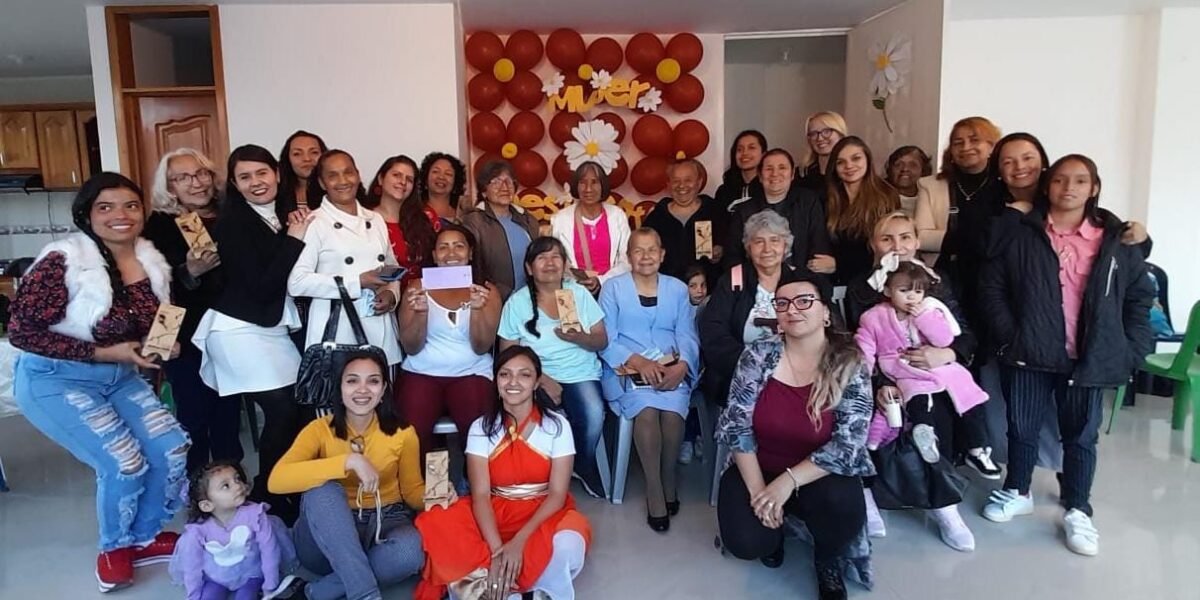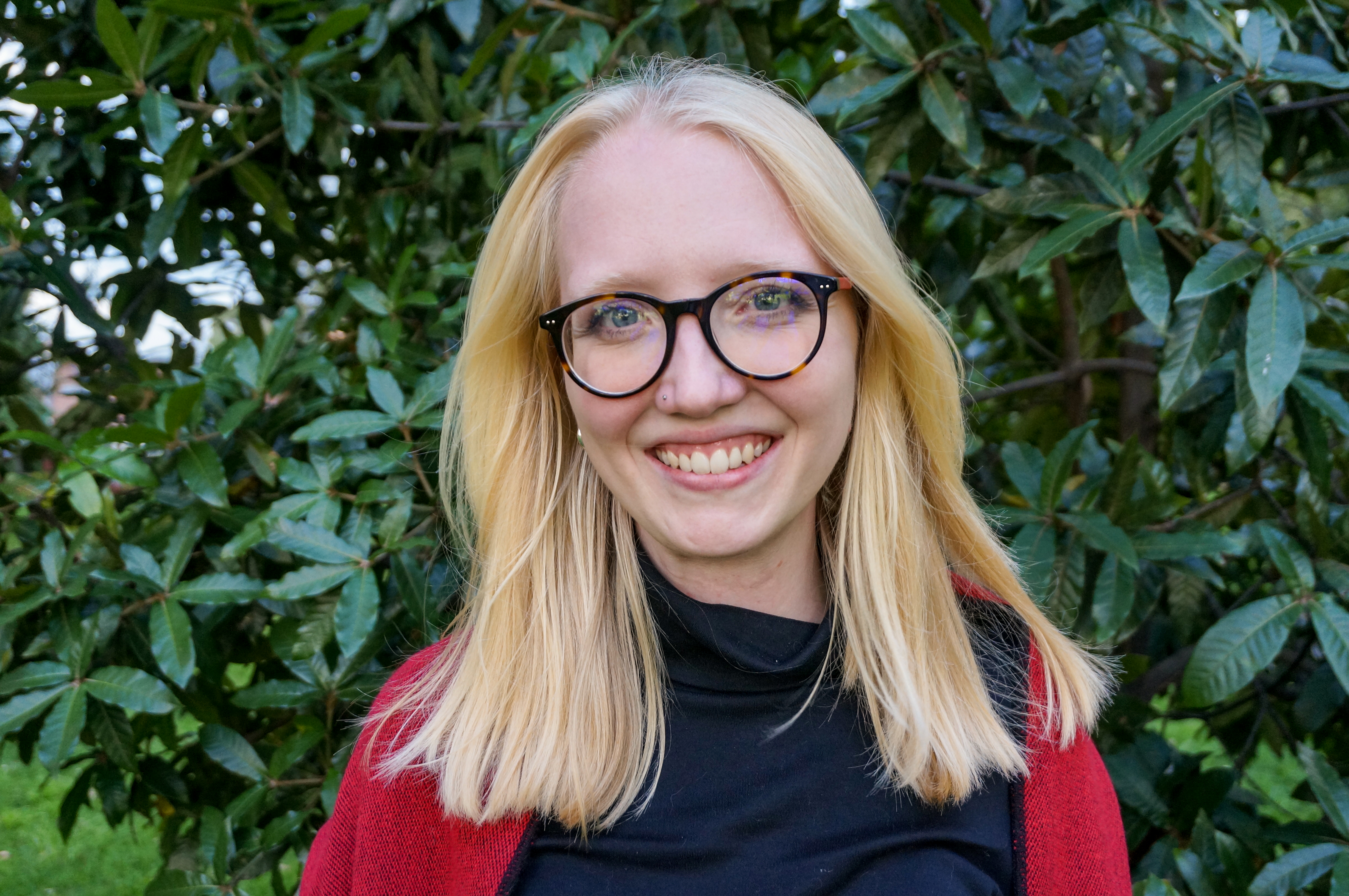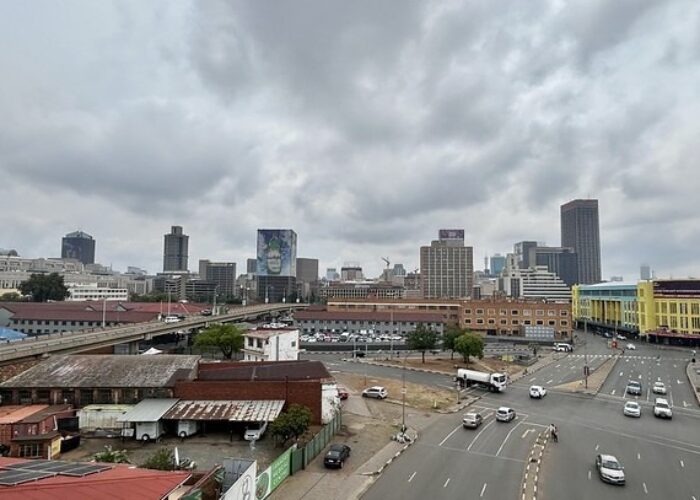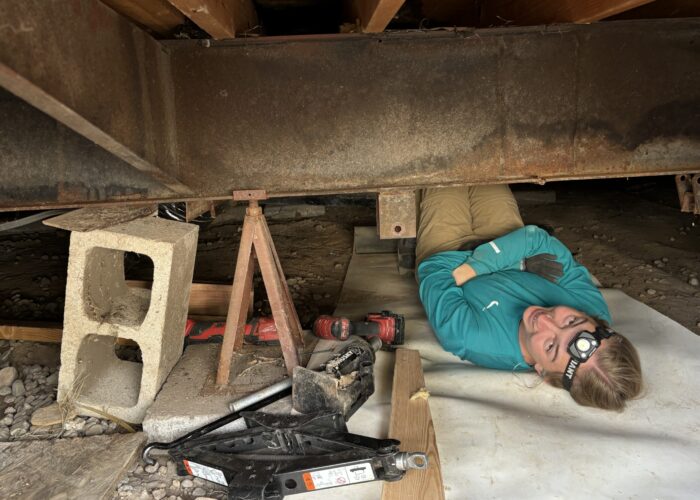Bekah serves in Bogotá, Colombia, with the Colombia Mennonite Church (IMCOL). She supports the work of the Seminario Biblico Menonita de Colombia (Mennonite Biblical Seminary of Colombia, SBMC). Additionally, she works with Justapaz (Colombian Mennonite peacebuilding organization), to accompany the Mujer y Paz (Women and Peace) project, which looks at the role of women in peacebuilding endeavors.
My local church, Iglesia Menonita de Tesuaquillo, continues to be contextually active, living out a “here-and-not-yet" kind of hope, specifically through projects with Venezuelan families. We support families emotionally and financially on a six-month cycle, with spiritual support that continues.
Every Wednesday morning, I walk to the Mennonite Center, where the church is located, to help with Venezuelan family interviews and assist with childcare for children ranging from newborns to four-year –olds, so their parents can fully participate in the discipleship classes offered by a local Mennonite pastor. I enjoy getting to know families on a deeper level, by spending three to four hours per week with their children.
As I continue to develop relationships with local church leaders, I am invited to facilitate contextual Bible readings during one hour of the discipleship class, as well as provide a space solely for women, offered on the first Wednesday of each month.
These monthly women’s spaces began in October 2022. We read the story of one woman from the Bible and discuss what we can learn and apply from the story in our lives. The hope is that it will be a time of loving embrace, in which the women can unload and share each other’s burdens, then share a meal.
Also, I continue traveling with my co-workers to various territories facilitating workshops on the role of women as peacebuilders, drawing on the biblical example of Abigail from 1 Samuel 25.

Trust in God during difficult times and the importance of self-care were some of the topics at the women´s retreat in Ibagué. They also discussed the story of Abigail — how to learn from her focus on God´s heart for God´s people as well as her capacity to think clearly on her feet and spur to action — which was only possible if she was taking care of herself and staying grounded in God´s peace.
I had the privilege of accompanying two Mennonite churches, one in the city of Ibagué, Colombia, and the other in Armenia, during their annual women’s retreats, which were finally able to be held in person! During both retreats, we examined the biblical story of Ruth and discussed what it might look like to walk through difficult times with other people, knowing and trusting that God is present in the midst of darkness. It was a mutual blessing to be able to share space with women and church leaders who have become friends.
My hope is to intentionally address the connection between peacebuilding and advocacy with the churches and organizations that
Justapaz accompanies in the territories. The word "advocacy" is loaded, oftentimes carrying too much political baggage, making it difficult to talk about with churches and faith-based actors.
However, as the gospel message invites us to an abundant life (John 10:10), we, too, can invite people into a different way of living based on the confession of the Good News. At its core, this is what advocacy from a faith perspective is about.
One way to explore this idea in the different macro-regions where Justapaz and
Mujer y Paz work is by developing conversations around different types of power.
There is a feeling in civil society that power is inherently corrupt, and the closer you are to power, the more you can be co-opted.
For this reason, many peacebuilding efforts, as well as communities and religious actors, are hesitant to embark on advocacy initiatives.
An entry point for Mujer y Paz is knowing how to balance the ideal of power with the reality of power and forming and accompanying a positive application of it. This will not be an easy task, but one way we are thinking of approaching this topic is to start by using Jesus as an example and then analyze the different types of power:
Power over, power with, power to and power within.
In peacebuilding efforts, it is vital to focus on building positive peace — not just the absence of violence but also the fostering of harmonious and just relationships — as peacebuilding is a task that requires transforming physical, structural and cultural violence. Our plan is to develop ways to see advocacy as a strategy that can be used to effect change, especially at the structural level.





